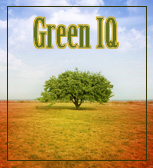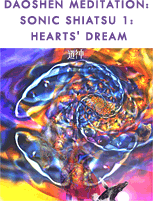Ask Ronit
 I Like Your Ponytail, A Story About Commitment
I Like Your Ponytail, A Story About Commitment
“I like your ponytail.” I said in a playful manner. “Ponytail?” he repeated in a thick French accent. There and then began the most extraordinary odyssey of my life.…
Avoid 90% of the Pesticides in Food, by Avoiding 12 Foods
Why should you care about pesticides in your food?For starters there may be as many as twenty pesticides on a single piece of fruit you eat.…
Dear Mrs. Black,It was January 1967 when this 11 year-old, frightened, little Israeli girl walked into your classroom for the first time. I had only arrived in the country two weeks before.…
With sex all around us, oozing out of our televisions, theaters, magazines, fashion, on the streets, one would think we are the most sexually informed, open and comfortable nation on the planet.”…
I’m sure by now you all have noticed the ongoing meltdown in the mortgage industry. The cause of this whole mess is a little bit complicated, rooted in both the structure of the mortgage industry, and human nature. I’ll try to explain both factors here in layman’s terms.…
Breaking old habits; Creating new Ones
We are mostly habitual beings. Webster defines habit as an acquired mode of behavior that has become nearly or completely involuntary.…
Navigation
On Being Certain
By Aaron Parker
We live in a society that seems to value certainty. As a group, we trust someone who stands up and declares, “I know something without a doubt.” Do we ever stop and ask ourselves, “What is certainty?” It’s a very important question that is never asked.
So, let’s ask it. What is Certainty? I don’t want to address individual issues, I want to talk about the state of being absolutely certain. It means that we think we know everything there is to know about a subject, to have absolute knowledge such that it’s not even worth the time to listen to other information.
It’s very comforting to feel this way. It removes the unknown, that feeling that there is something out there waiting to surprise us. This is a feeling that is built into us genetically, and we don’t like it. Being certain helps us cope with our primal fears. It’s that same fear we have of the dark. It’s about not knowing what is about to jump out at us. The world is a much more complex place than it was, and as the internet and cable news and the flattening earth expand our range of vision, it also drives home to us the idea that we are small and that there is more out there then we can hope to understand. We react to this by sticking to a small set of beliefs about which we are absolutely certain. This is one of the causes of the resurgence of religious fundamentalism we see.
But is being certain a good thing? What effect does it have on our thinking? Personally, I think that as soon as we are certain about something, it removes our ability to think critically, and prevents us from remaining open to new information.
Is it better to win an argument or lose one?
I would say it’s better to lose one. If you win, you get the great reward of being right. If you lose, you get the better reward of learning something and therefore growing. The person who wins the argument feels better, but the person who loses IS better; one has grown, one just got to be right.
So, what is the proper way to think? I can’t tell you for certain (*wink*) but my feeling is that it’s important to maintain a level of uncertainty in everything. Sure, we think that some things are very likely, almost to the point of certainty, but it’s important to always maintain a little doubt about everything. Let’s look at how science is supposed to work. Scientists make observations, and then develop theories that fit the observations. Are they certain about the theories? They fit all observable evidence, and seem to work. Still, any good scientist will tell you that most theories are only placeholders that seem to work until something better comes along. It may be new observations that don’t fit the model, or it may be new mathematical techniques that allow us to process information more efficiently, or any other new factor. Science is the process of always refining our thinking to get closer to the truth. We will probably never get all the way there, but it’s the process that’s important.

 My Hero
My Hero We Are Sexual Beings
We Are Sexual Beings The Banking Implosion
The Banking Implosion















Incorporating uncertainty in your understanding, relationships and language is about being honest with oneself and others.In an counter-intuitive sense, uncertainty is actually about clarity. However, it isn't easy to live that way.
Let's say you exercise this practice in business and tell a co-worker that you will complete a task by Friday and if any problems arise you will let them know Friday morning if any and further that those problems should be resolved in any event by the following Monday. From experience I can tell you that your co-workers will consider you unclear, unprofessional, hard to deal with, and call you "slippery."
Still I'd rather be slippery and honest than slippery with dishonesty and excuses.
I didn't mean what I said here as license for anyone to be slippery in their personal dealings. I intended it more as a an approach to the world and decision making, rather then a guide to personal interaction. I think it's very important to be as true to your word as possible and to meet all your commitments. Obviously things sometimes come up, but I don't think we need to mention all the possibilities in every conversation.
I don't think there's anything wrong with saying "I'll have this to you by friday" when that's your intention, and you believe that in all likelihood you will be able to meet that deadline. If we need to spell out all possible outcomes every time we talk, conversations will become endless and boring as hell.
I also completely agree that incorporating the uncertainty into personal interactions is very important. It's too easy to disagree with someone and stop listening because you think you know the whole situation, but that ends any realistic chance of reaching an understanding. I find that's it's much more productive to try to learn something about the person and try to see how they see things. If you can do that, then even if you still disagree with them, you can debate much more effectively because now you understand their concerns, fears and needs. Otherwise, you might as well just have two tape recorders playing in an empty room for all the consensus you are going to reach.
Thanks for stnaitrg the ball rolling with this insight.
Post new comment